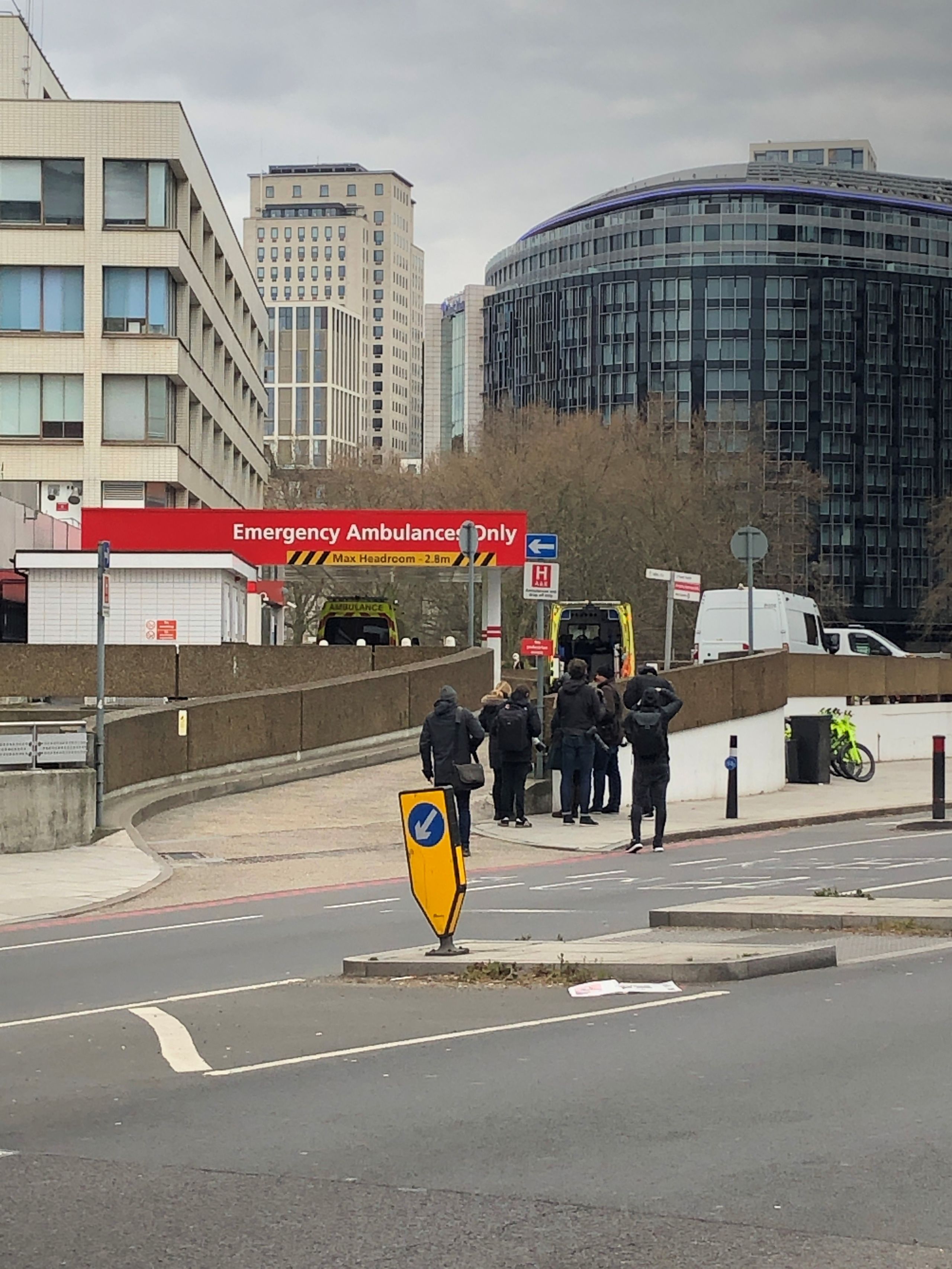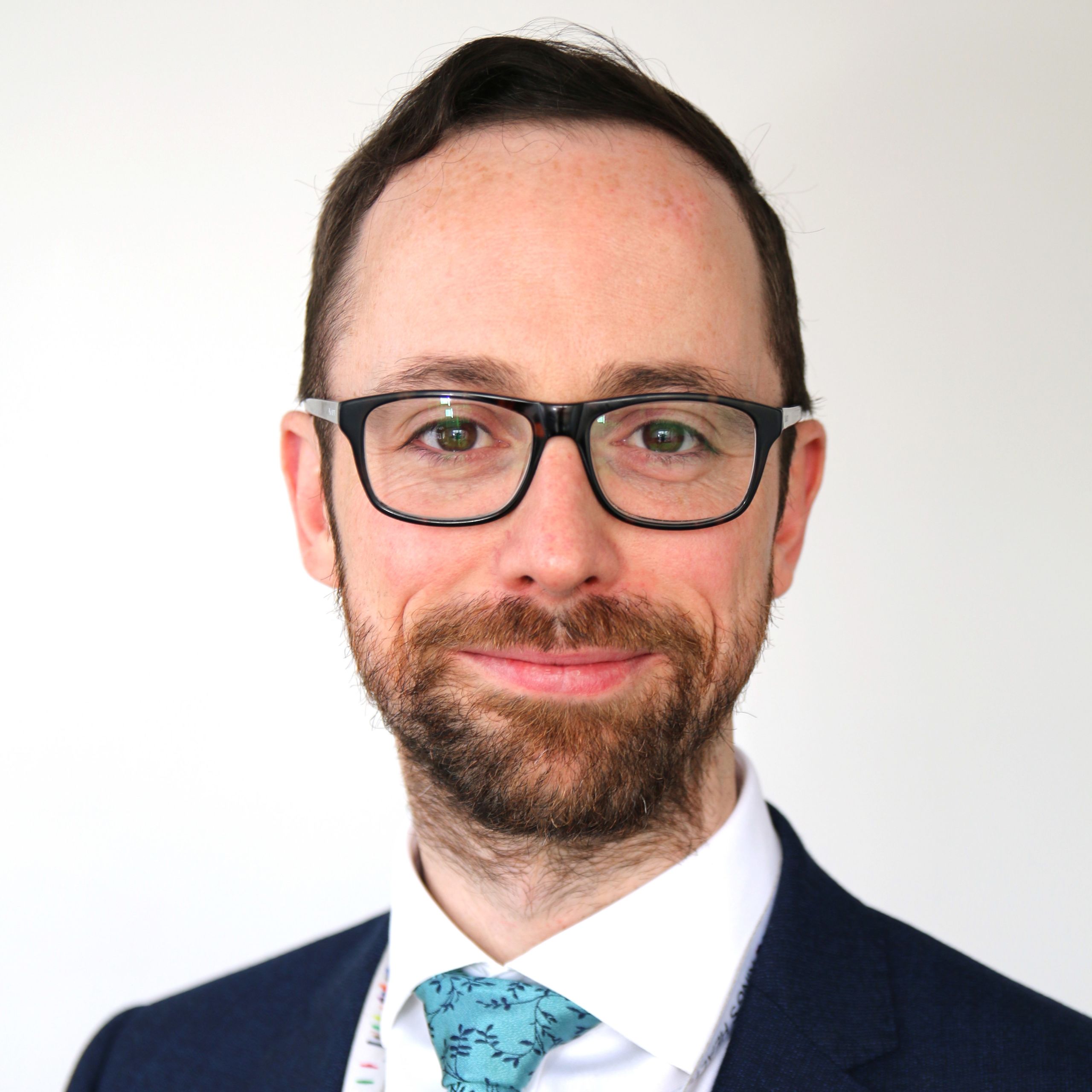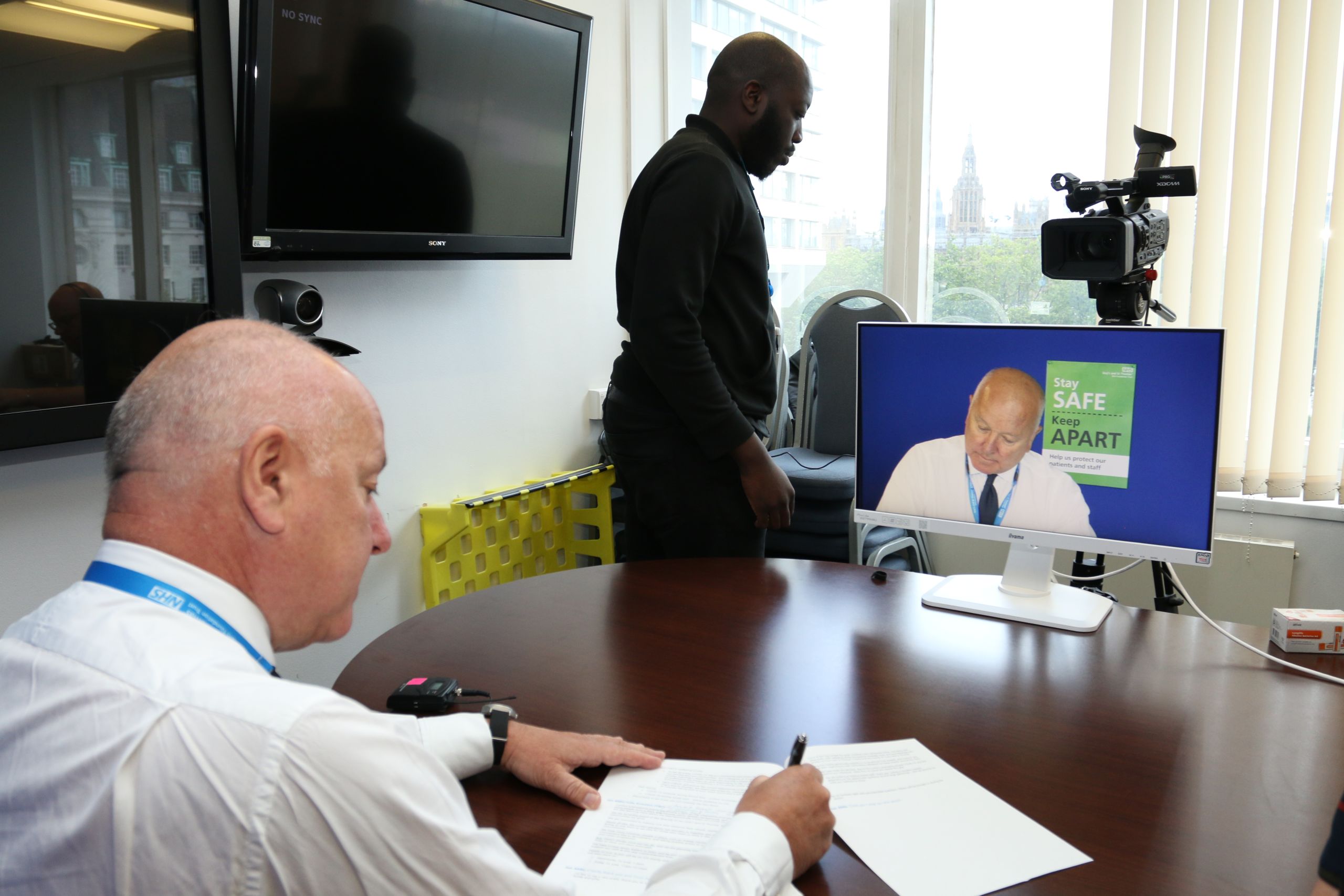Michael's story

Michael Carden
Head of Media and Corporate Communications
“We have a duty to protect all our patients whoever they are.”

“Among the first cases of COVID-19 to be identified in the UK were a group of skiers who returned from the French Alps in February. One of them had attended a conference in Singapore where he picked up the virus and passed it on to his mates.
They were admitted to St Thomas’ and the Royal Free. There was huge media interest. Reporters wanted to know who these people were, how they had got it, how they were treated, what happens in an isolation unit.
We have a duty to protect all our patients whoever they are. While the members of the group were in hospital, this was easier, and this is what we are set up for. They were getting requests in all sorts of weird and wonderful ways. We had to advise them on the pros and cons.
The bigger challenge came when they went home. The media knew where they lived. We worked with IPSO (the press standards organisation) to ensure they were protected if there was press intrusion.
We had kept staff informed about what was going on with the first cases in February. But by March, the NHS wide response was developing and society was changing. That was when internal comms became absolutely vital. It was incredibly difficult because of the uncertainty.
The challenge was not just to tell staff how to do their jobs, which was changing every day, but also to support and reassure them.

Monthly staff briefings were moved online
Monthly staff briefings were moved online
We had to explain how we were responding operationally – setting up swabbing stations, expanding capacity, stopping services, deciding what PPE was needed – while addressing how things were changing in the outside world – travelling, social distancing, when people should go to work.
The challenge was not just to tell staff how to do their jobs, which was changing every day, but also to support and reassure them. We sent out daily emails with the latest updates from Ian Abbs (Chief Executive) and made enormous efforts to get the tone right, showing appreciation and understanding of the efforts they were making.
It was difficult because we were not their only source. People were getting information and mis-information from everywhere and we had to deal with that. If we didn’t know we said so, rather than ignoring the issue because we didn’t have a definitive answer.
For example there was a lot of discussion of schools closing for at least 10 days before it happened. That caused a lot of worry. We said we understood staff’s concerns and we would let them know as soon as we could what it would mean for them.
Often our daily email did not go out till 7.30pm which was not ideal. But it needed to reflect decisions made during the day and the government briefing at 5pm often contained announcements that needed to be reflected in our message.
On PPE, though we did very well as a Trust and never ran out, it was difficult because the guidance kept changing. We never knew which masks we had until we pulled them out of the next consignment. The staff were getting information from multiple sources and wanted to know was the PPE good enough? The trade unions were active too. But with help from the infection control team and the SNPs, we were able to issue guidance to reassure staff. Together with a very active procurement operation that put us on the front foot.
On the Sunday before Easter I was on call when I got a message to join a 5pm briefing on a 'VVIP admission'. That usually means royalty or the cabinet. It was no secret the Prime Minister was ill and he hadn’t been heard from for a couple of days.
I talked to No 10 that evening. They said they wanted to be open and transparent. All the announcements on the PM’s condition came from them but we made sure what they said was clinically informed by the two Nicks.
“What took us by surprise was the video statement Boris made after he was discharged, expressing his gratitude to the NHS and St Thomas’ and naming the doctors...It was all very nice but they found themselves in the limelight without warning.”
It was an incredibly busy time for our team. As well as calls from the media around the world we had to field calls from well wishers and people wanting to suggest miracle cures. At the same time we had to let staff know they would see police with guns on site and to remind them not to speak to the media.
We had been having major problems with photographers taking pictures of patients being wheeled into A&E, which is on a busy main road. They were very intrusive and staff got very upset about it. Just before the PM was admitted we had got IPSO to issue a notice to get photographers away from the entrance. Then the hoarding was erected around the site and we got questions as to why, and what it had cost because people thought it was linked to the PM, which it wasn’t.
What took us by surprise was the video statement Boris made after he was discharged, expressing his gratitude to the NHS and St Thomas’ and naming the doctors – 'they all seem to be called Nick' - and nurses who had looked after him, in particular Jenny McGee from New Zealand and Luis Pitarma from Portugal. There was a storm of interest in them. It was all very nice but they found themselves in the limelight without warning.
Thank you to the Prime Minister for his kind words about our Trust today, and in particular our wonderful staff who cared for him.
— Guy's and St Thomas' (@GSTTnhs) April 12, 2020
We ask that the privacy of these individuals is now respected by the media as they carry on doing their important work caring for our patients.
We appealed for privacy for the staff that had cared for the Prime Minister
We had to protect them and we refused all requests initially. Then we agreed with Jenny and Luis they would do one interview with their national broadcaster – from New Zealand and Portugal – and that was what we sent round the world.
By May and into June, things had started to quieten down for the media team. People were tired and the adrenaline had gone, but it was still really busy. For our digital and patient information team, the pressure continued. They had to work with every clinical department to learn how services were opening up, what they were doing, how patients could access them, and then update that information online. They did a fantastic job.
Our annual internal communications staff survey was delayed till June and we got a really good response. Over 3,000 staff took part and 95% said we had done a good job. I am incredibly proud, not just of keeping them informed but helping them through a difficult period. It was obviously important they knew where to go and what to do but it was also vital we acknowledged how difficult it was for them in their personal as well as their work lives.”
Read more stories

